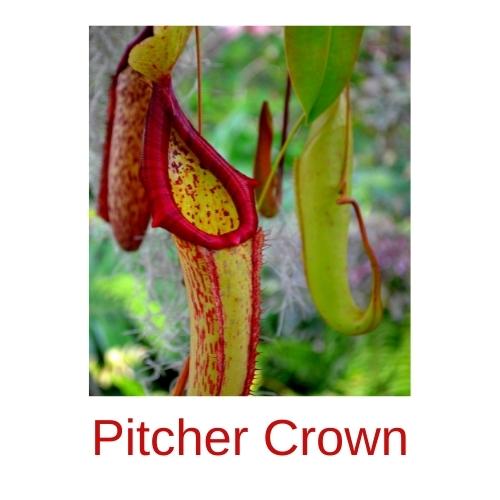Have you ever wondered what the benefits of owning a pitcher plant are? Well, we’re here to tell you all about it! Pitcher plants have been around for millions of years and they come in all shapes and sizes. Not only do they make beautiful additions to any room due to their exotic, vibrant colors but they also offer some unique health benefits that many don’t know about. From potentially improving air quality in your home, aiding in digestion issues, and reducing stress levels – there is much more than meets the eye with these remarkable plants!
What nutrients are in pitcher plants?
Pitcher plants are intriguing because of the way they get their nutrients: by adding carnivorous tendencies to their diet! Once rooted, pitcher plants obtain the necessary minerals and nutrients by consuming various insects, such as flies and beetles. They also absorb energy from the sun through photosynthesis – just like other plants.
These two primary methods allow pitcher plants to thrive in otherwise nutrient-deprived environments. Interestingly, although they aren’t designed to eat large animals, some larger forms of pitcher plants can even consume rodents and frogs! Whatever the prey, it is caught in a deep cup full of digestive enzymes at the bottom of the pitcher plant’s “pitcher”, making these peculiar yet delightful plants truly unique.
What are the medicinal uses of carnivorous pitcher plants?
Carnivorous pitcher plants are amazing creations of nature with several medicinal benefits. Studies have shown that pitcher plant extracts can act as a natural anti-inflammatory and reduce pain, swelling, and redness in localized areas.
These extracts have also been used to slow down bacterial growth in the body, which helps protect against infections. They can be ingested or applied topically depending on their intended use, making them a very versatile medicinal option.
Additionally, they are capable of improving nutrient absorption within the body to boost immune health as well as support better overall health and well-being. Pitcher plants not only provide fascinating addition to your garden but also countless advantages for your health.
What are the two main nutrients pitcher plants get from their host?
Pitcher plants are fascinating organisms that get their nutrients from a unique source, instead of from the soil. They have evolved to accommodate their environment to capture prey for sustenance. Its remarkable pitchers are what allow these carnivorous plants to survive and gain their primary nutrients of nitrogen and phosphorus from their unsuspecting host insects.
These two essential components help nourish the pitcher plant so it can thrive even in barren, low-nutrient soil. Truly an amazing adaptation that goes to show how clever evolution can be!
Why is a pitcher plant special?
Pitcher plants are special because they have developed an ingenious way to capture their prey. Unlike other plants, pitcher plants have evolved pitcher-like structures with downward-facing hairs that create a slippery descent as insects approach. Then they become ensnared by the digestive fluids inside that dissolve their meal! Impressive right?
These unique carnivorous plants can survive in conditions where most others cannot since nutrients are scarce. They’ve adapted over time to take advantage of these environments and ensure their survival – a superpower nature bestowed upon them
What is unique about the pitcher plant?
The pitcher plant is a truly fascinating species of plant! It has evolved an incredibly unique adaptation to capture its prey – it uses specially-designed “pitchers” or containers with slippery sides, filled with fluid and an attractive scent, to lure wandering insects in.
Once they take the bait, they slip into the container and can’t climb back out! Not only that but the pitcher fluids are even able to digest these insects over time. Talk about an impressive survival mechanism! It’s no wonder that pitcher plants have been around for millions of years, as a beneficial part of nature’s delicate balance.
Is the pitcher plant a medicinal plant?
Although the pitcher plant isn’t traditionally known for medicinal purposes, some people believe it can have therapeutic benefits when used as a remedy. This is because of the plant’s bitter-tasting characteristics and strong odors, which could be a helpful defense against certain infections and illnesses.
Interestingly enough, many different cultures, from Native Americans to ancient Egyptians, all praised the plant for its various healing properties. Trying out this natural treatment might be worth it if you’re looking for a remedy that doesn’t involve harsh chemicals or artificial ingredients. Plus, the pitcher plant just looks so interesting, it makes any room feel more lively!
Conclusion
All in all, pitcher plants are truly unique and special. Not only can they add a touch of beauty to your garden, but their many health benefits make them an undeniably attractive addition to any home. By providing essential vitamins and minerals, helping fight illness and illnesses, and reducing inflammation, the pitcher plant can offer multiple advantages with its iconic shape. Furthermore, through its natural insecticide ability, you can keep troublesome pests away from your gardens or homes.








